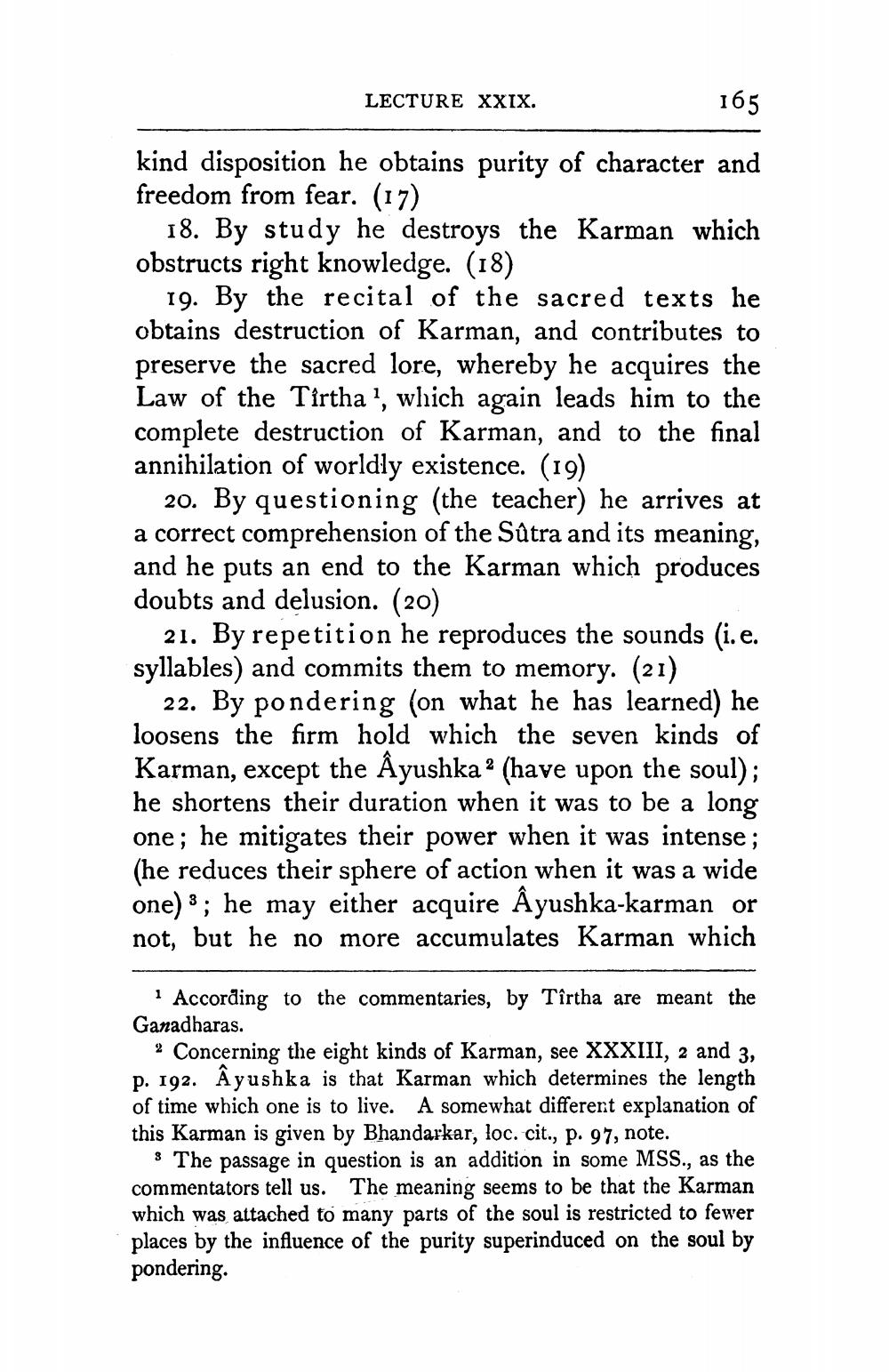________________
165
kind disposition he obtains purity of character and freedom from fear. (17)
LECTURE XXIX.
18. By study he destroys the Karman which obstructs right knowledge. (18)
19. By the recital of the sacred texts he obtains destruction of Karman, and contributes to preserve the sacred lore, whereby he acquires the Law of the Tirtha', which again leads him to the complete destruction of Karman, and to the final annihilation of worldly existence. (19)
20. By questioning (the teacher) he arrives at a correct comprehension of the Sûtra and its meaning, and he puts an end to the Karman which produces doubts and delusion. (20)
21. By repetition he reproduces the sounds (i. e. syllables) and commits them to memory. (21)
22. By pondering (on what he has learned) he loosens the firm hold which the seven kinds of
Karman, except the Âyushka2 (have upon the soul); he shortens their duration when it was to be a long one; he mitigates their power when it was intense; (he reduces their sphere of action when it was a wide one); he may either acquire Âyushka-karman or not, but he no more accumulates Karman which
1 According to the commentaries, by Tîrtha are meant the Ganadharas.
2 Concerning the eight kinds of Karman, see XXXIII, 2 and 3, p. 192. Âyushka is that Karman which determines the length of time which one is to live. A somewhat different explanation of this Karman is given by Bhandarkar, loc. cit., p. 97, note.
The passage in question is an addition in some MSS., as the commentators tell us. The meaning seems to be that the Karman which was attached to many parts of the soul is restricted to fewer places by the influence of the purity superinduced on the soul by pondering.




